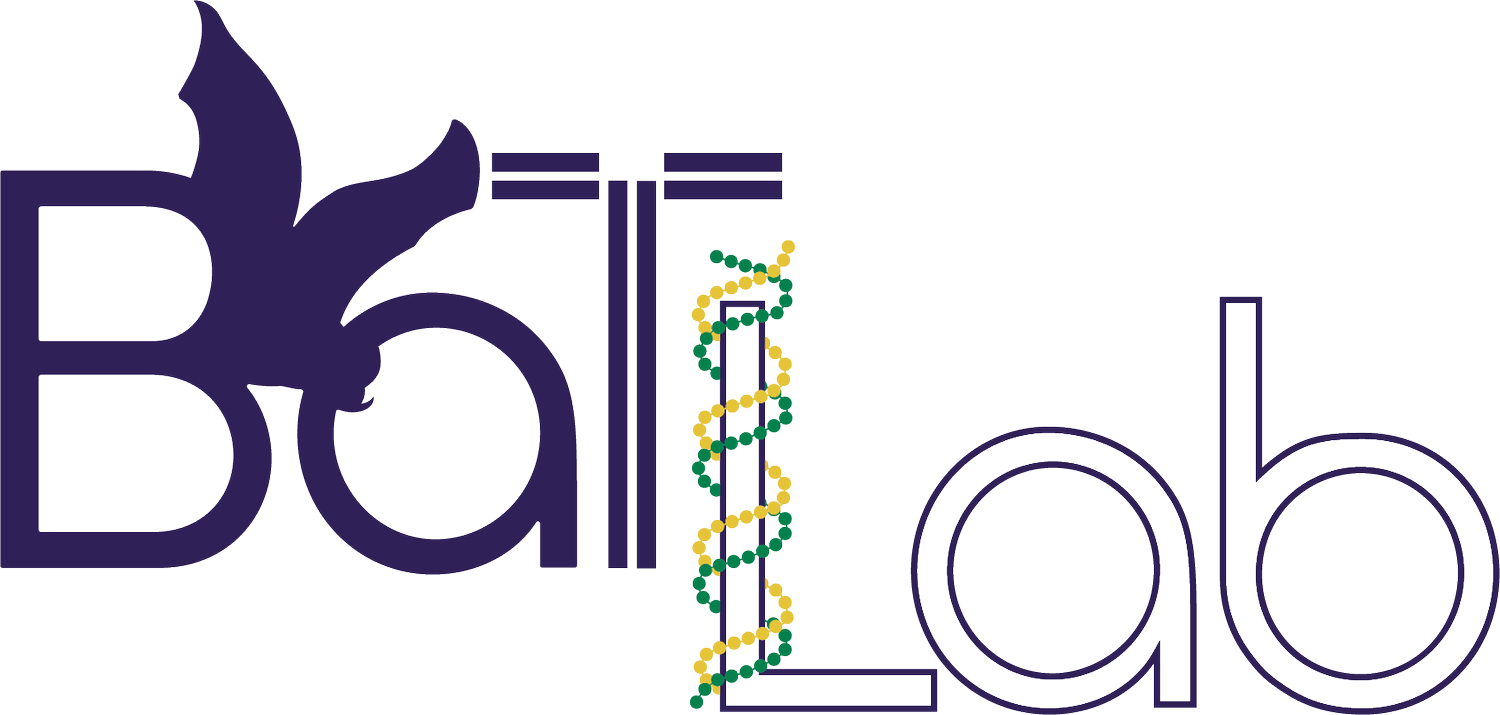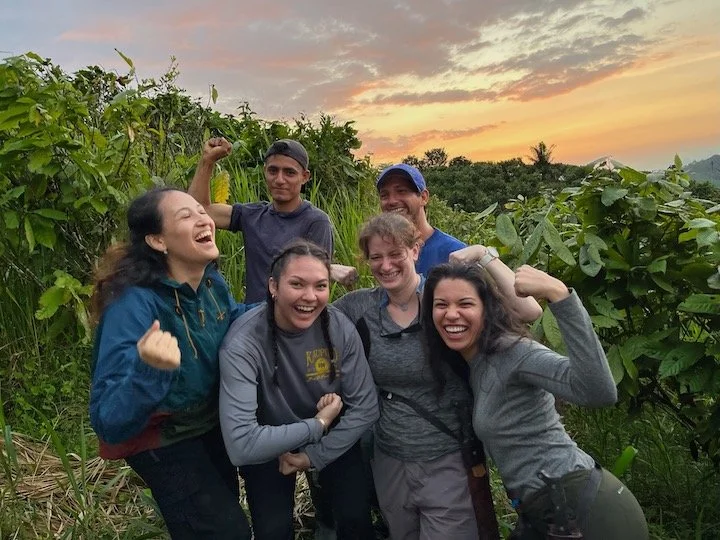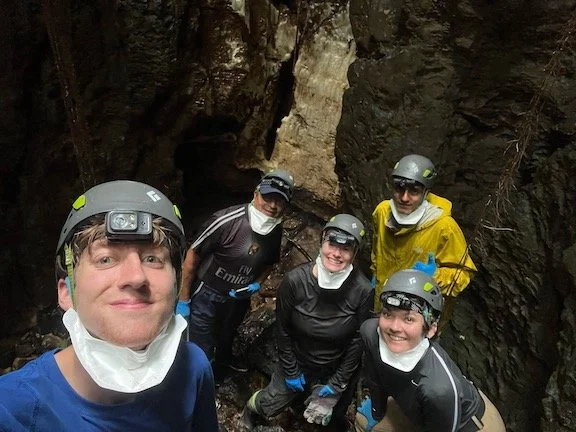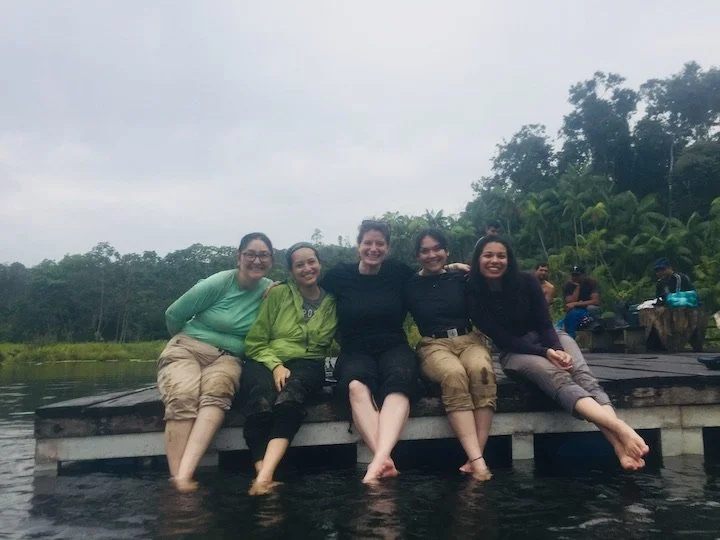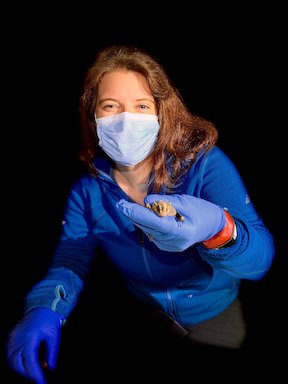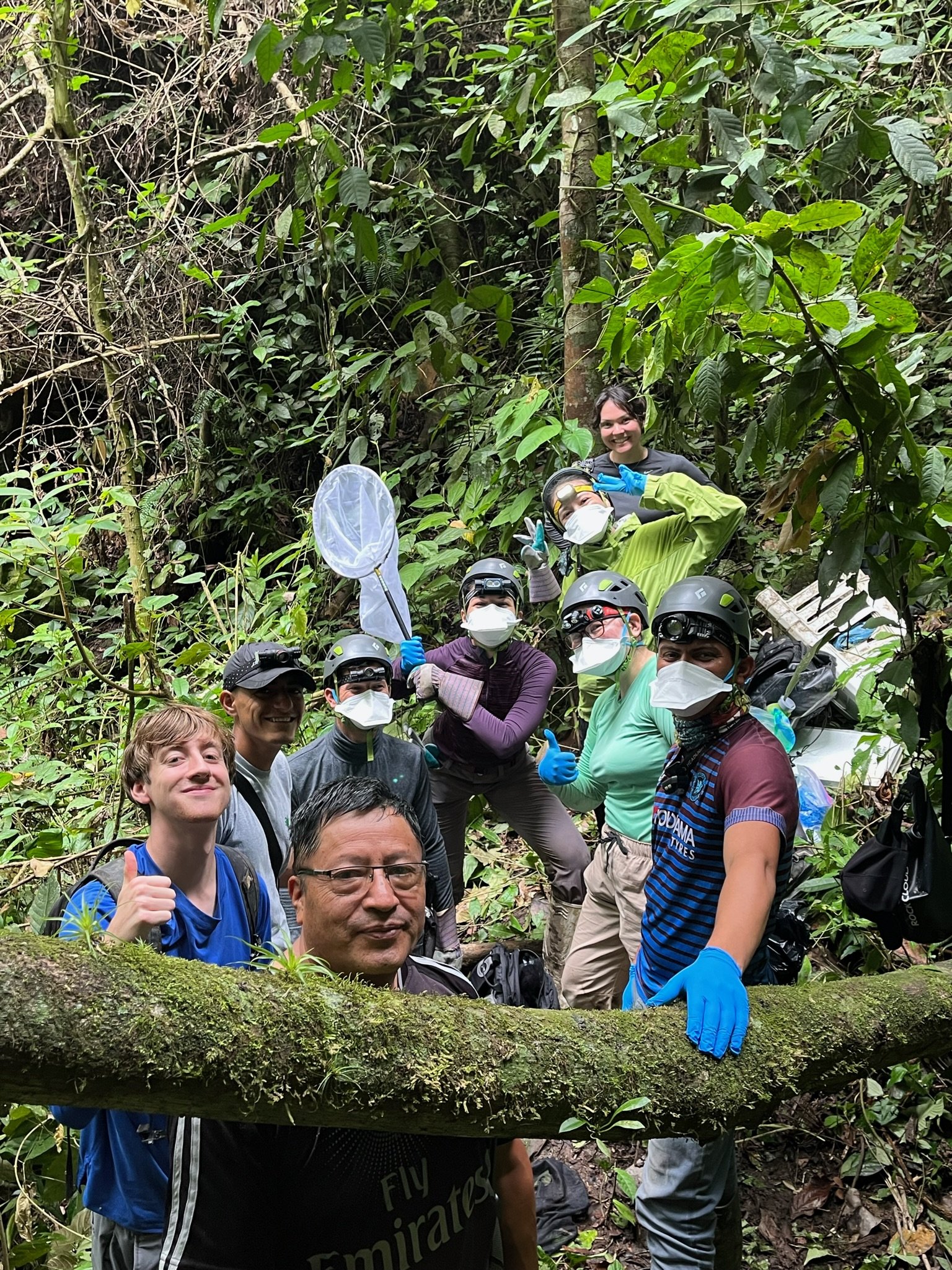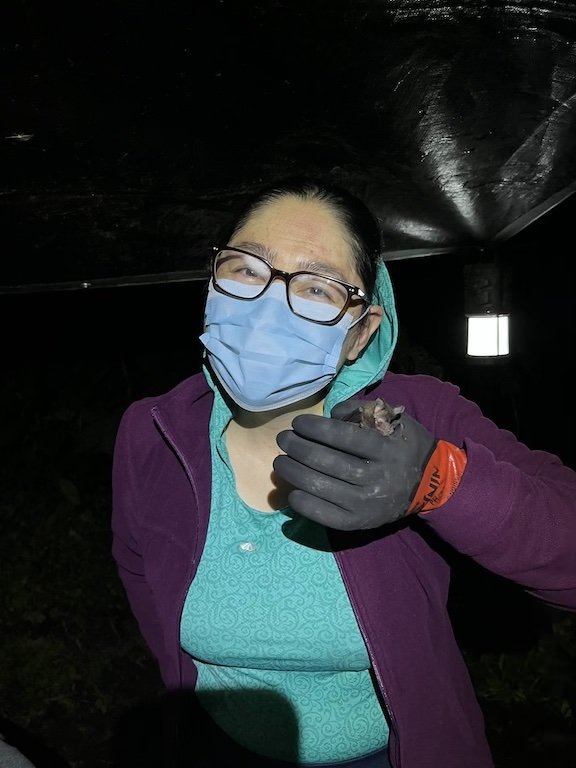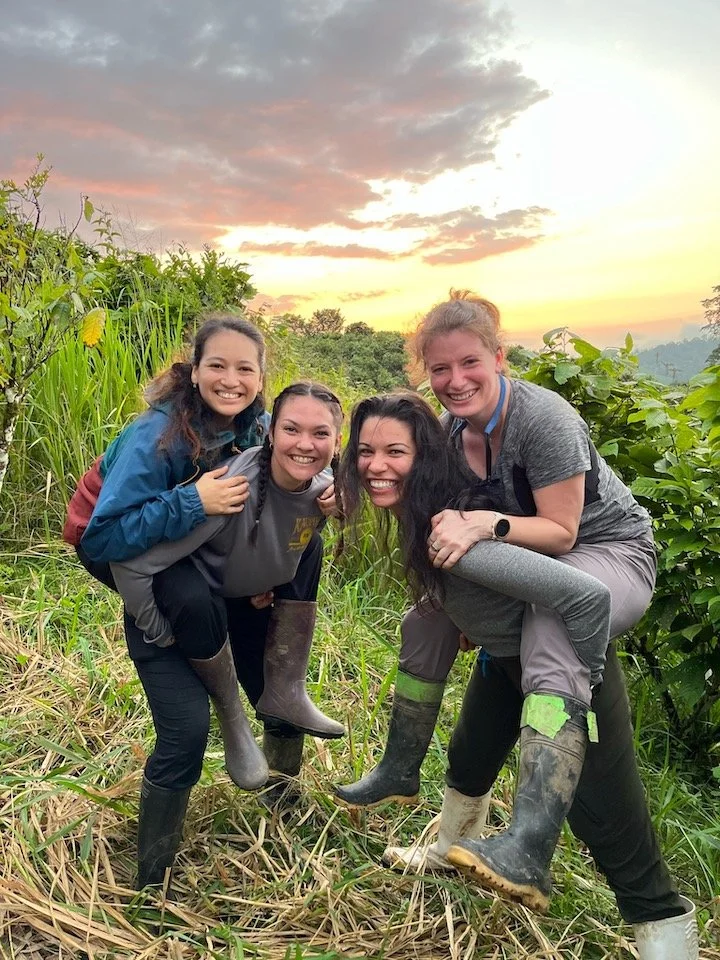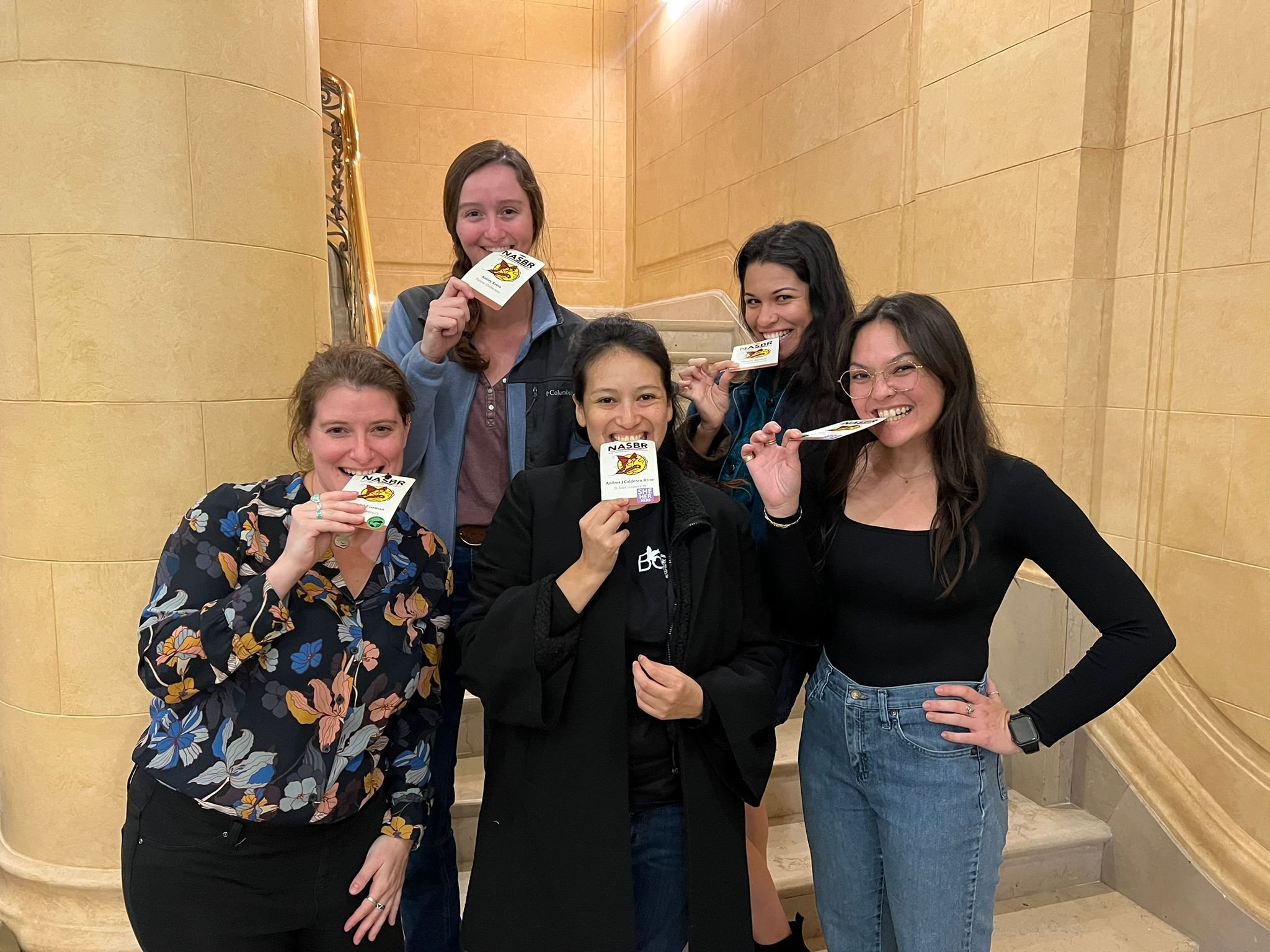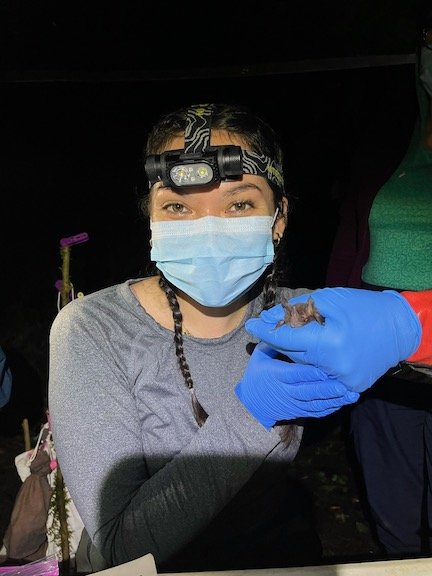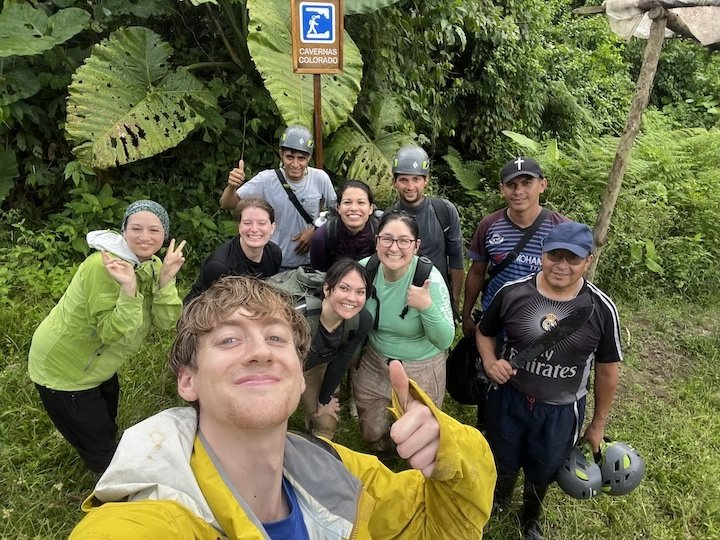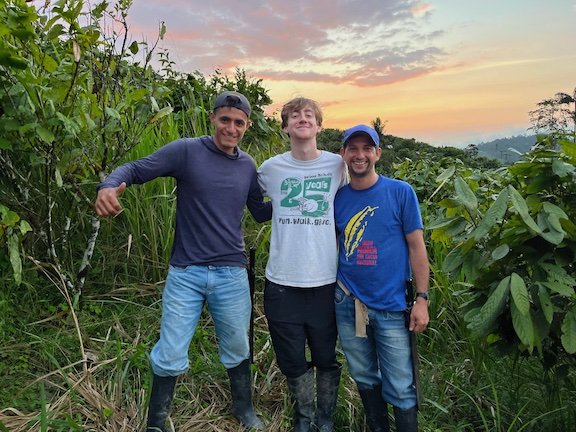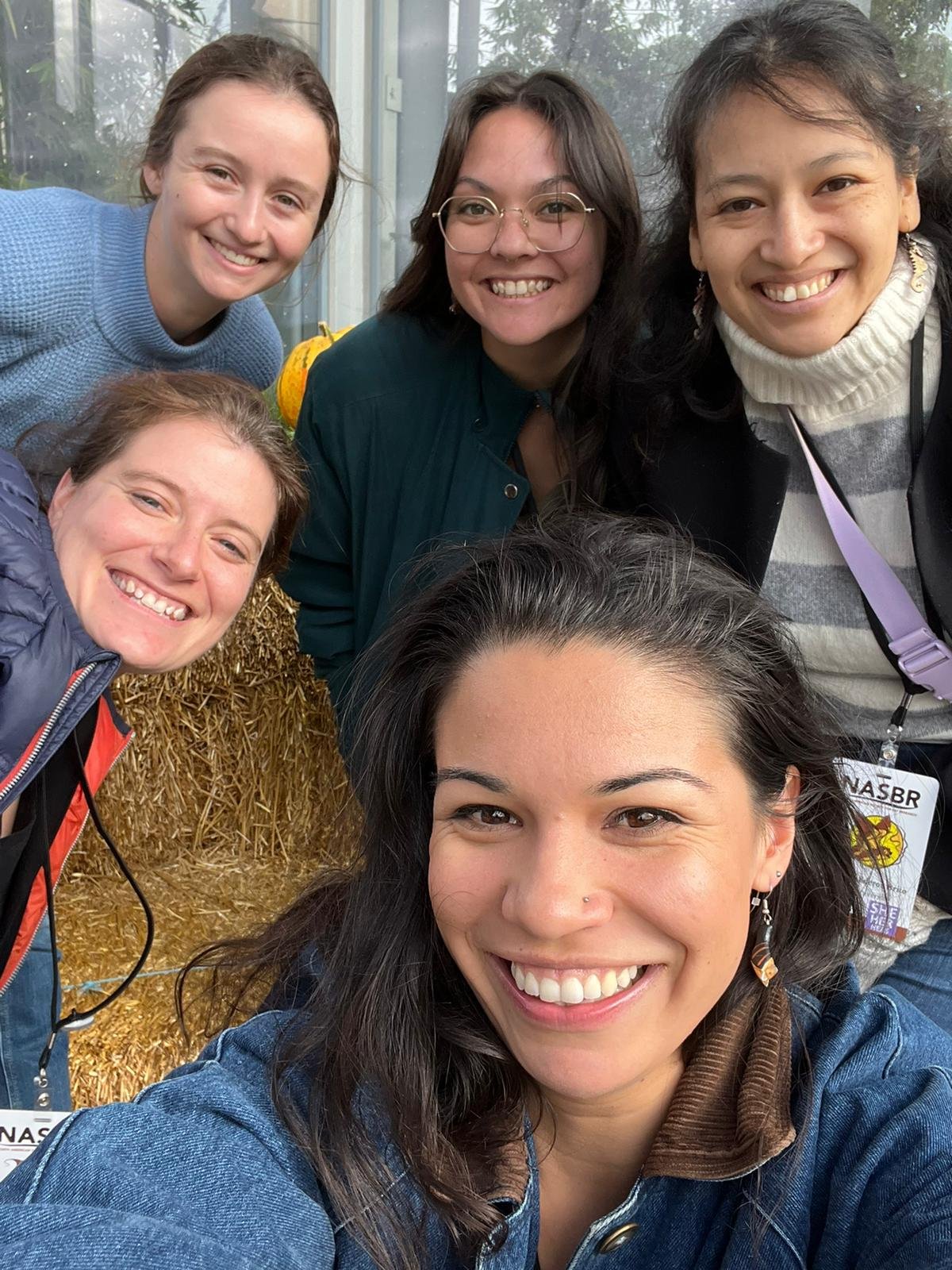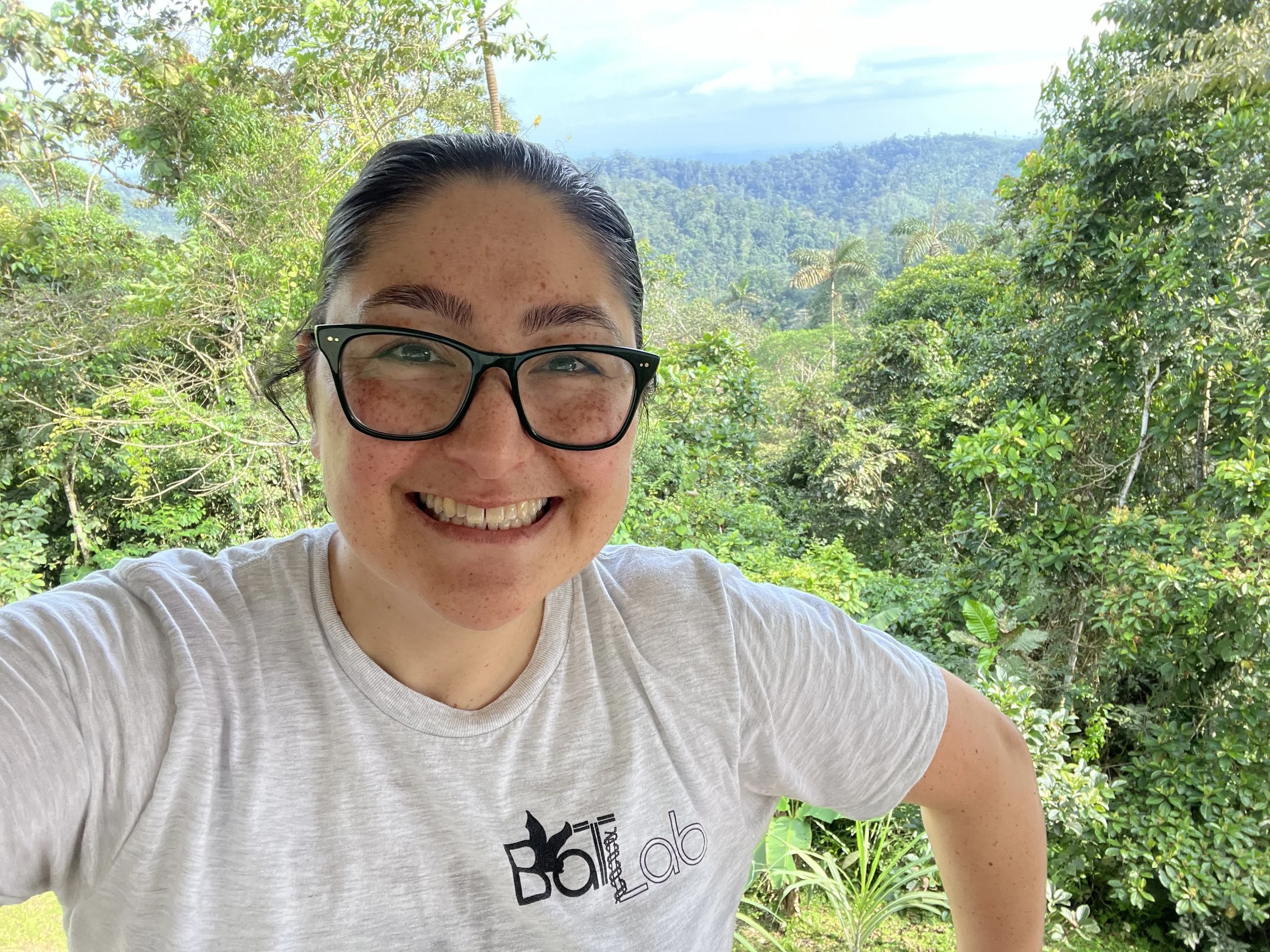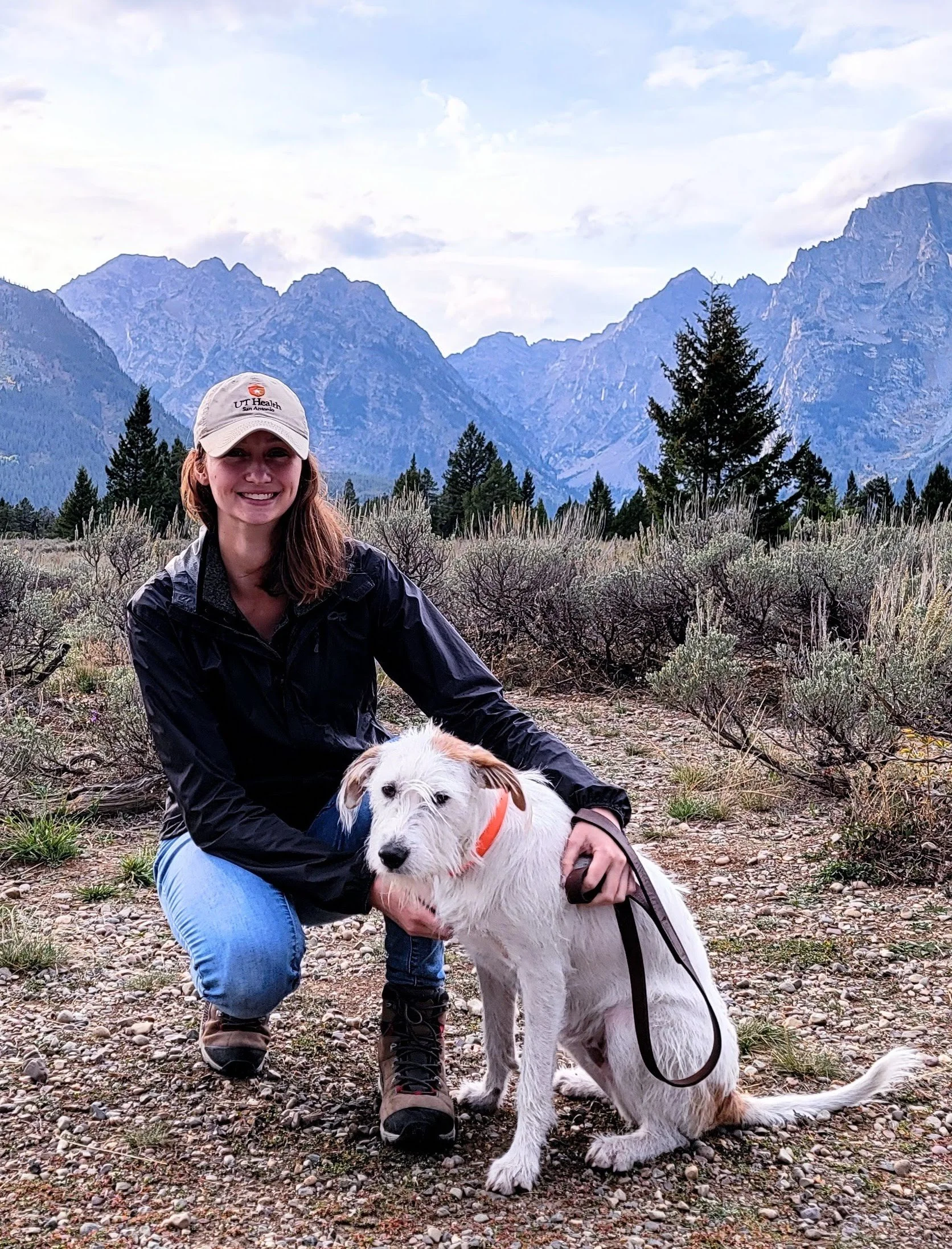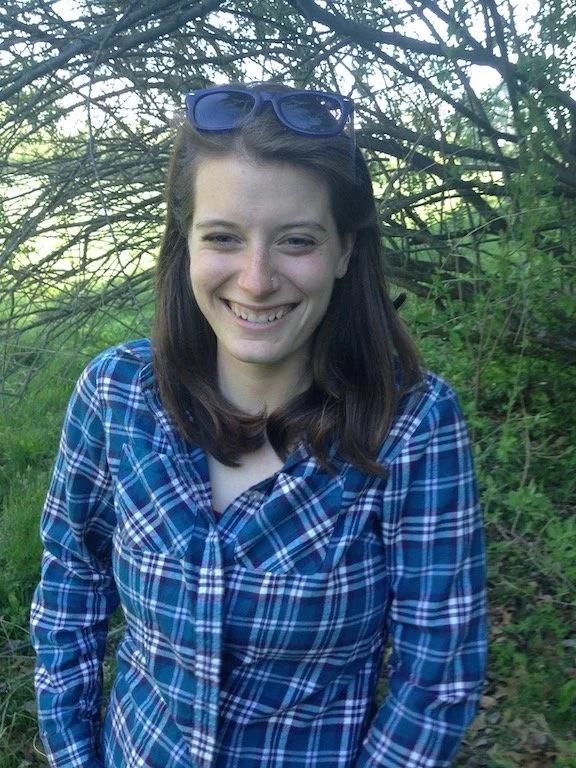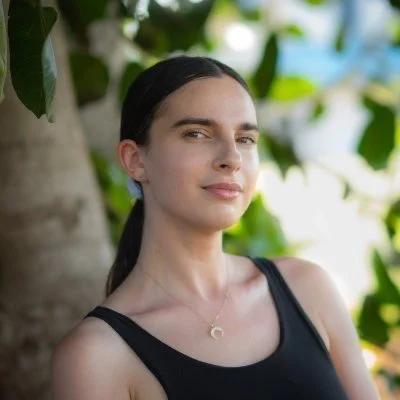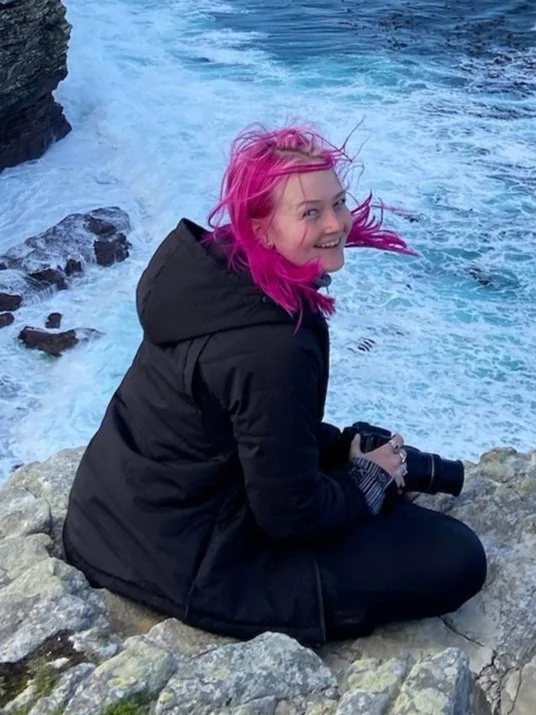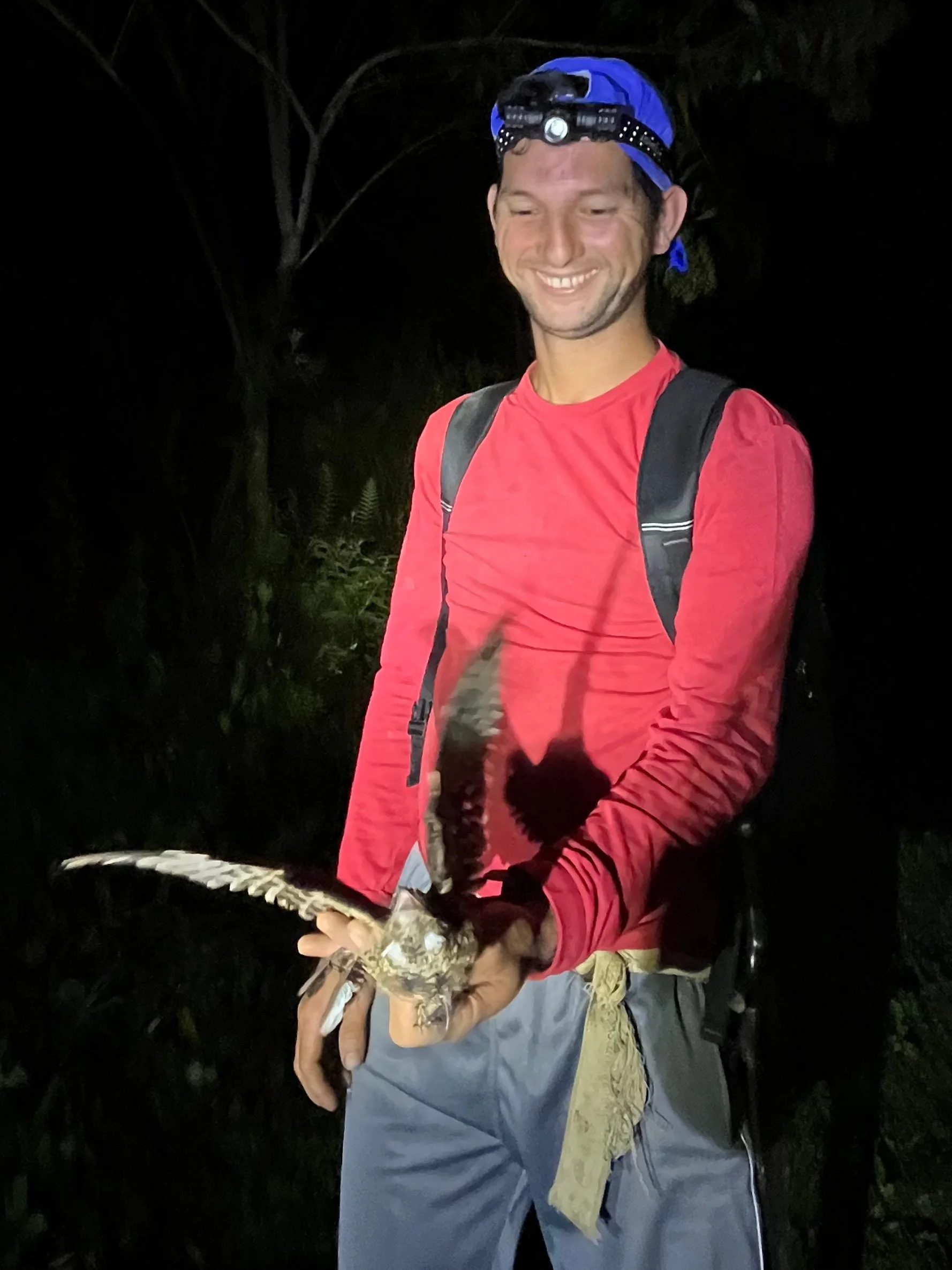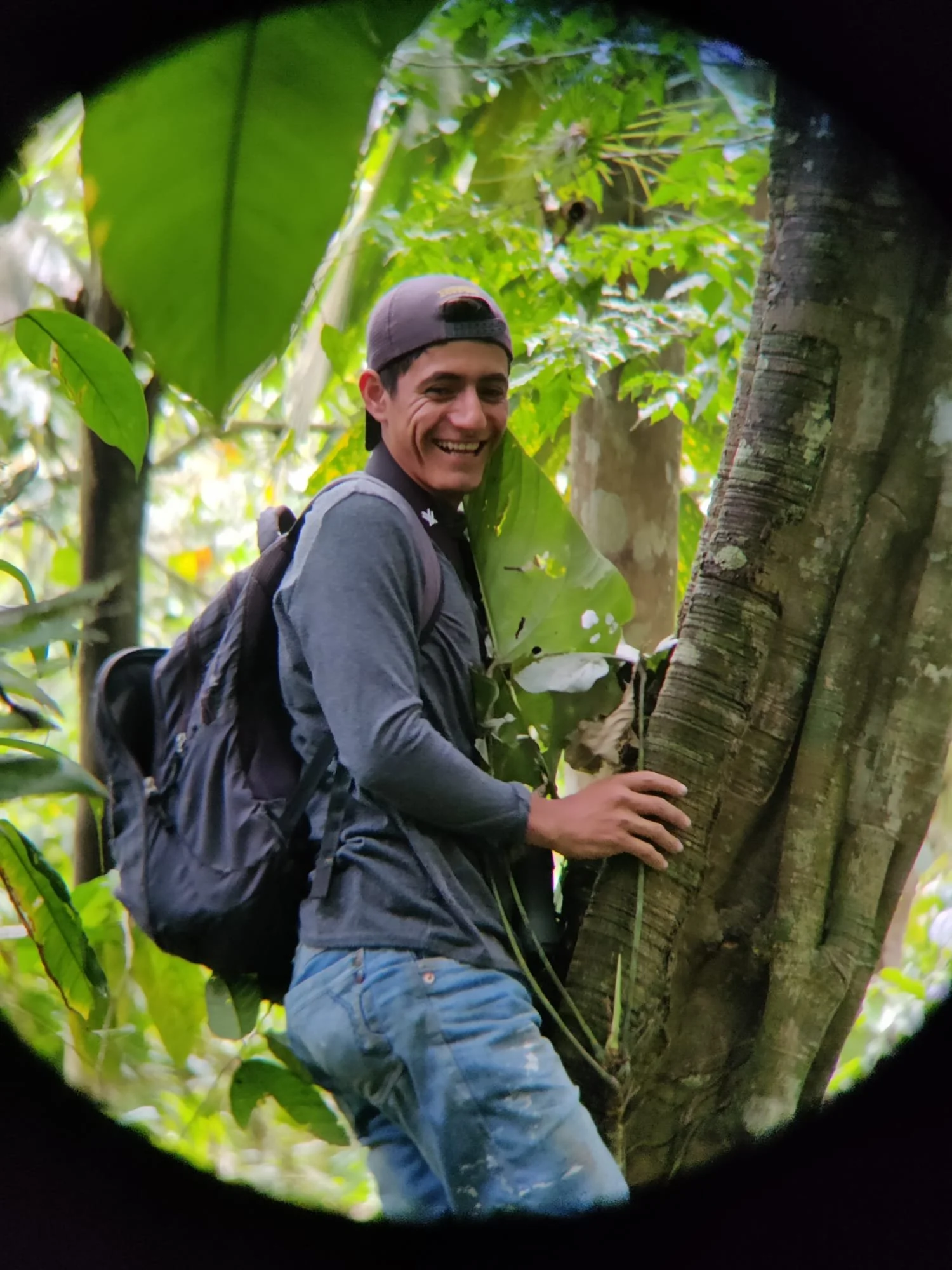Principal Investigator
Hannah at the FCAT field station proving that bat biologists do emerge during the day.
Hannah K. Frank, PhD
Hannah earned an AB in Organismic and Evolutionary Biology summa cum laude from Harvard College in 2009 before studying ecoimmunology in a threatened reptile in New Zealand on a Fulbright fellowship. She completed her PhD in Biology in 2017 at Stanford University and did her postdoctoral work in immunology in the Stanford School of Medicine. Hannah’s research combines field work, targeted infection screening, genomics and immune characterization to explore the ecology and evolution of host-infection interactions. In particular, she is interested in how host ecology and habitat disturbance impact bat-pathogen interactions and the evolution of bat immunity, especially their B and T cell receptor diversity. In her spare time she enjoys baking and tending to her F1s.
CV (updated 31 January 2024)
Postdoctoral Scholars
Ashley and her dog, Calvin, conquering the Grand Tetons!
Ashley Reers, PhD
Ashley is a postdoctoral researcher interested in using bioinformatic and sequencing approaches to understand the development and function of B cell responses in bats. She completed her BS in Molecular Genetics at The Ohio State University in 2018. Then in 2022, she earned her PhD in Integrated Biomedical Sciences from the University of Texas Health Science Center, studying gene regulation in Plasmodium falciparum and changes in the B cell receptor repertoire during chronic malaria infection. In her spare time, Ashley enjoys running, road tripping, and hiking with her dogs.
PhD students
Andrea enjoys the sunset at one of the agriculture sampling sites.
Andrea Calderon Brito
Andrea is a second-year PhD student interested in the ecology, evolution, and population genetics of Ecuadorian bats in various habitats. She graduated from La Universidad de Azuay, Ecuador with a BS in Biology, Ecology, and Management. She completed her MS at the City University of New York studying the genetic diversity of Neotropical bats. Andrea aims to integrate genomic tools into conservation management plans. When she is not thinking about bats, she enjoys riding her bike, watching the latest movies, and eating NOLA's delicious, but too-spicy food.
The outdoors make Hannah smile.
Hannah Eiseman
Hannah Eiseman is a third-year PhD student interested in the disease ecology of bats and the risk of zoonotic disease spillover in anthropologically-influenced landscapes. She graduated from the University of Vermont in 2014 with a B.S. in Zoology and received her Master’s degree from Tufts University in Conservation Medicine in 2020. She has previously conducted field work in Patagonia, British Columbia, Australia, and most recently has been studying white-nose syndrome in New England bats with support from the Broad Institute. In her spare time, she enjoys running, reading, and finding new food and music in New Orleans.
Mika is pumped for lab work!
Mika O’Shea
Mika is a first-year PhD student and Verena Lighthouse Scholar. She received her B.A. in Cell & Molecular Biology and Mathematics from Occidental College and her M.S. in Infectious Disease and Global Health from Tufts University. With a background in immunology and wildlife ecology, Mika will investigate how host-pathogen coevolution has shaped immune function and diversity in different bat species. Beyond her research, Mika strives to promote inclusivity and accessibility within the scientific community, and enjoys running, discovering new music, and hanging out with her one-eyed cat Tobi.
Phoebe found a butterfly friend!
Phoebe Reuben
Phoebe is a third-year PhD student interested in the impacts of anthropogenic pressures on physiological stress, immunity, and disease prevalence in bats. She is also interested in understanding the social and political significance of engaging the broader community in ecological research. Phoebe graduated with a BA in Biology and Psychology from Vassar College, where she studied phenotypic plasticity in response to predation risk in Dendropsophus ebraccatus tadpoles. In her spare time Phoebe enjoys running, playing soccer, and teaching her cats how to give high fives.
Despite being a bench scientist, Juniper still enjoys trees.
Juniper Rosen
Juniper is a third-year PhD student in the Tulane Bioinnovation program coadvised by Dr. Frank and Dr. James McLachlan in the Tulane School of Medicine. Juniper is interested in the unique immunological host-pathogen interactions between bats and their viruses, and how these mechanisms might be harnessed towards anti-viral therapies. She completed her MS in Cellular and Molecular Biology at Tulane in 2021, during which time she investigated modulations to host lipid metabolism imparted by human cytomegalovirus. Juniper is passionate about sustainability and methods by which research laboratories can decrease their environmental impacts. In her spare time Juniper loves exploring New Orleans by bike, taking in the natural beauty, history, and abundance of local food and agriculture.
Undergraduate Researchers
Becky, masked and making music!
Becky Lang
Becky Lang is a junior at Tulane University majoring in music performance on a pre-medical track. She joined Dr. Frank’s lab in the Fall of 2022 with an interest in cross-species transmission and susceptibility. Outside of academics, she loves playing in the university orchestra and being on the water with the rowing team.
Perry prepares for porpoise patrol!
Ben Perry
Ben is a senior at Tulane University majoring in Ecology & Evolutionary Biology and Neuroscience. He joined Dr. Frank's lab in the Fall of 2023 with an interest in host-parasite interactions. Outside of school, he works as an EMT and plays the drums in bands with his friends.
Andrew prepares to spelunk.
Andrew Spencer
Andrew is a junior at Tulane University majoring in Biochemistry. He joined Dr. Frank’s lab in the spring of 2023 with an interest in volatile organic compounds and parasitism in bats. He is a field organizational wizard and our designated group selfie taker.
Chiara in the wild.
Chiara Whitehurst
Chiara is a senior at Tulane University majoring in Public Health and Ecology & Evolutionary Biology. She joined Dr. Frank’s lab in the Fall of 2022 with an interest in spillover events and anthropogenic impacts on pathogen-host interactions. Outside of school, she serves as communications director for South Africa-based nonprofit Chumisa Community Composting and religiously completes her Goodreads goal each year.
Field Technicians
We told you Dario likes nightjars.
Dario Cantos
Dario has been working with the BaT lab since summer 2021. In addition to being a master at all aspects of bat sampling and processing, he is the team’s resident snake spotter and nightjar wrangler. Prior to working with Equipo Murcielago, Dario worked on other research projects at the FCAT field station.
Spotted: the greater gray Luis
Luis Zambrano
Luis has been working with the BaT lab since summer 2021 (a few weeks after Dario). He is a master of all aspects of bat capture, handling and processing. He is also the resident angel on the team’s shoulder, most of the time. Prior to working with Equipo Murcielago, Luis worked with FCAT on reserve maintenance.
Friends and Collaborators
Equipo murciélago in Ecuador, June 2021!
We are lucky to work with a bunch of fantastic collaborators in the field and in the lab. Here is the Equipo Murcielago (Team Bat) in the field in Ecuador in June 2021. Clockwise from top left: Bill Orrico, DVM/MPH candidate at Tufts; Dario Cantos, our intrepid guide and budding bat biologist; Carlos Carrion, PhD; Thalia Williamson, past masters student; Phoebe Reuben, and Julianna Gilson.
And here’s a (nonexhaustive) list of some of our fantastic collaborators:
Scott Boyd Lab for Human Immunology (Stanford)
Molecular Ecology of Zoonotic and Animal Pathogens Laboratory (Washington State)
